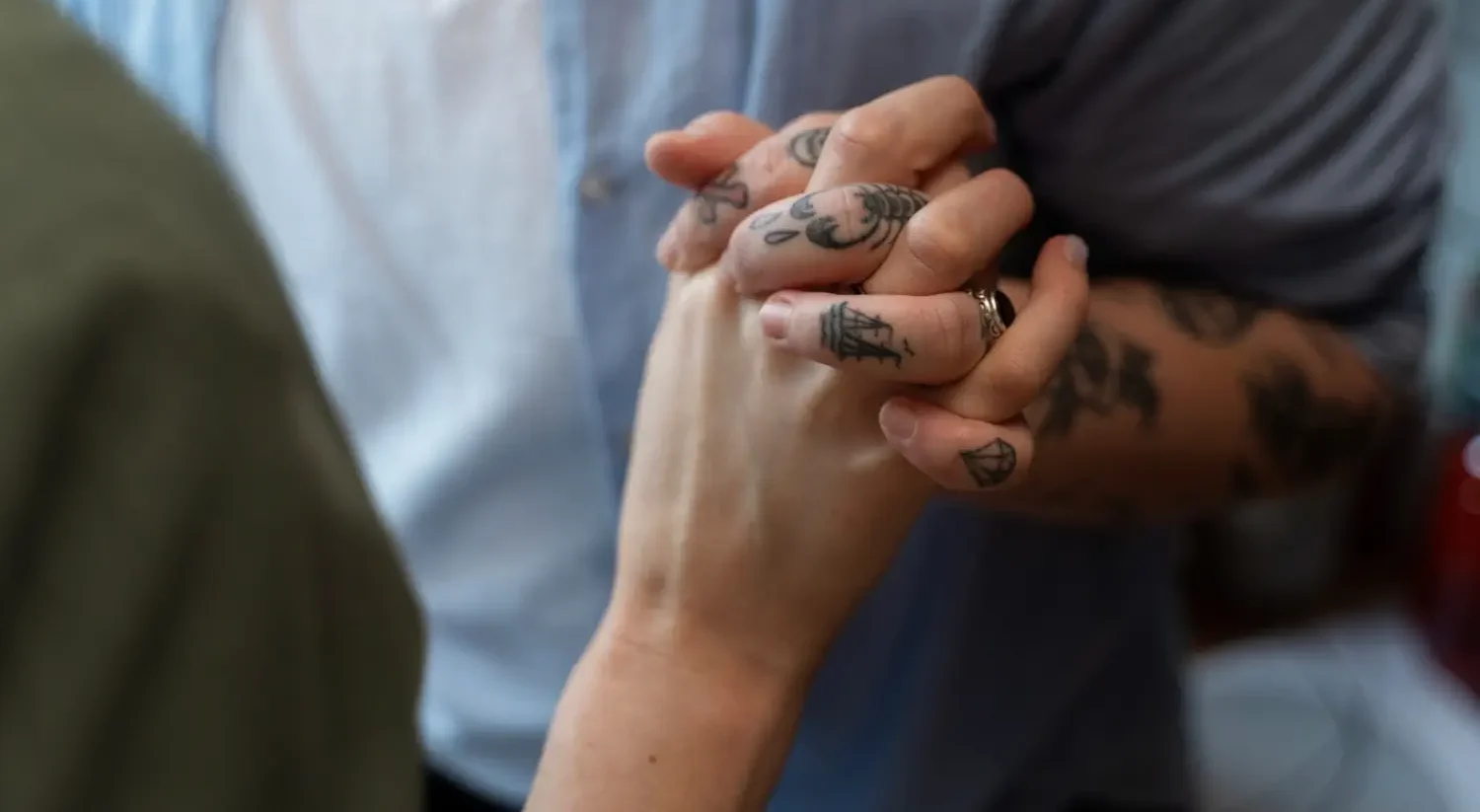We offer medical detox and multiple addiction treatment options in our
luxury treatment centres in Port Hope, Cobourg, and Ottawa.
How Tattoo Addiction Develops and Its Impact on Life?
Tattoos have evolved from subcultural symbols to mainstream art forms. While most people enjoy tattoos as meaningful self-expression, some individuals develop compulsive patterns around body modification that mirror other behavioural addictions. The development of tattoo addiction and its recognition as a condition requiring professional intervention can be crucial for maintaining both physical and mental well-being.
Key Takeaway:
- Why Are Tattoos Addictive? The body releases endorphins during tattooing that create an opiate-like euphoric sensation, while the ritual provides psychological control and emotional regulation for individuals coping with trauma or distress.
- How Does Addiction to Tattoos Develop? The progression follows predictable patterns—starting with meaningful, planned tattoos that gradually become more frequent and impulsive until the act of getting tattooed matters more than the tattoo itself.
- What Are the Signs Tattoo Addiction Has Taken Hold? Critical warning signs include getting tattooed beyond financial means, choosing appointments over responsibilities, experiencing anxiety without new tattoos, and immediate regret after impulsive decisions.
- When Do Mental Health Treatment Needs Arise? Compulsive tattooing rarely exists alone—71.4% of individuals with self-injury behaviours report pre-act anxiety, and excessive tattooing correlates strongly with substance use and other addictive behaviours requiring comprehensive treatment.
- What Physical and Financial Consequences Occur? Frequent skin trauma increases infection risk and scarring, while the financial burden leads to debt and neglected expenses, with removal costs often exceeding original tattoo prices.
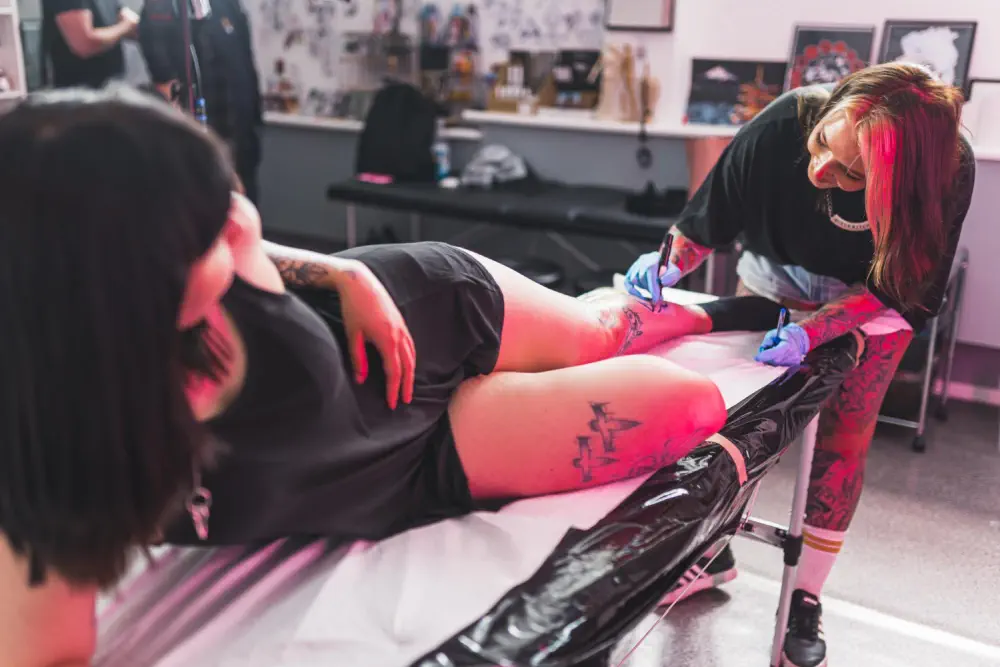
Why Are Tattoos Addictive?
The addictive potential of tattoos stems from complex neurochemical and psychological processes that occur during and after the tattooing experience. When needles penetrate the skin, the body releases a powerful cocktail of endorphins – natural chemicals that resemble the effects of opiates. This creates a euphoric sensation that can become deeply appealing to certain individuals.
Beyond the chemical response, tattoos fulfill profound psychological needs. Many people use body art as a coping mechanism for emotional distress, trauma, or low self-esteem. The act of permanently marking one's body provides a sense of control and ownership that can be particularly powerful for individuals who have experienced powerlessness in other areas of their lives.
The ritualistic nature of tattooing itself contributes to its addictive potential. The anticipation, the pain-pleasure dynamic, and the transformation that follows create a complete sensory experience. For some, this ritual becomes a reliable way to achieve emotional regulation or escape from psychological discomfort.
What Turns Tattoo Love Into Compulsion?
Tattoo addiction rarely begins as a compulsive behaviour. Most individuals start with a single, meaningful tattoo—perhaps commemorating a significant life event or expressing a deeply held belief. The positive feelings associated with this first experience, combined with social validation and the adrenaline rush, can create a desire for repetition.
The progression from appreciation to addiction follows predictable patterns. Initially, the person might wait months or years between tattoos, carefully planning each piece. Gradually, the intervals shorten. What once required careful consideration becomes impulsive. The focus shifts from the meaning of individual tattoos to the act of getting tattooed itself.
Several factors increase vulnerability to developing addictive tattoo behaviours. Research indicates that individuals with histories of substance abuse show higher rates of excessive tattooing. Those with underlying mental health conditions, particularly anxiety, depression, or personality disorders, may be more susceptible. Young adults experiencing identity formation challenges or those with histories of trauma also demonstrate increased risk.
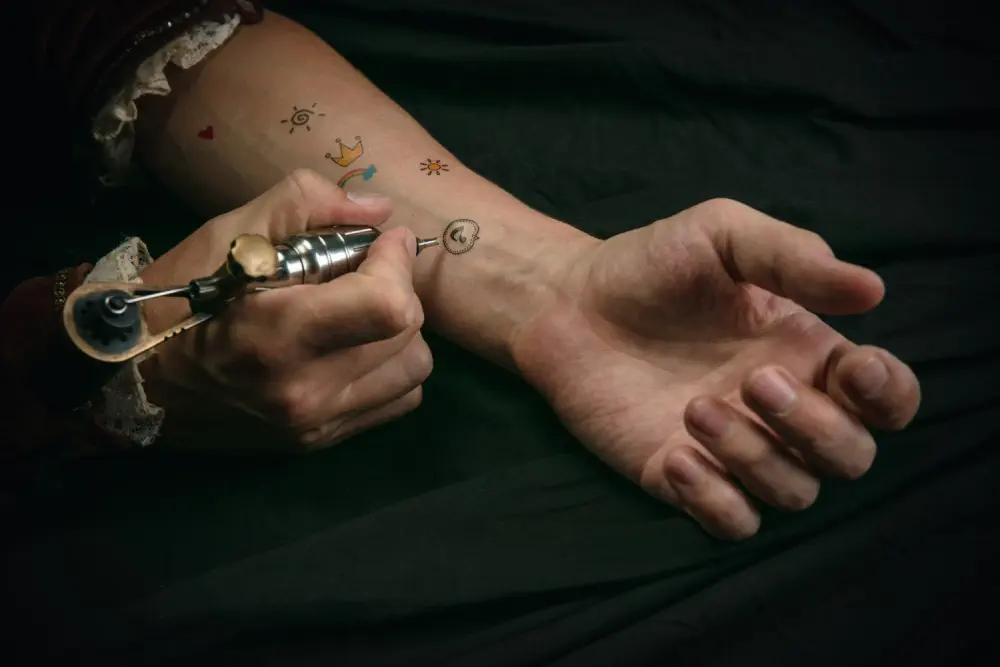
What Are the Signs of Tattoo Addiction?
A passion for tattoos crosses into addiction territory when specific behavioural and emotional patterns emerge. The following checklist can help identify problematic patterns:
Behavioural Warning Signs:
- Getting tattoos more frequently than planned
- Spending money on tattoos despite financial constraints
- Choosing tattoo appointments over work or social obligations
- Getting tattoos in visible areas that jeopardize employment
- Inability to resist getting new tattoos despite wanting to stop
- Hiding the extent of tattooing from friends and family
- Constantly browsing tattoo designs and planning the next piece
- Getting tattooed while intoxicated or making impulsive decisions
Emotional and Psychological Indicators:
- Feeling anxious or irritable when unable to get tattooed
- Experiencing guilt or shame after each new tattoo
- Using tattoos to cope with negative emotions
- Feeling empty or incomplete without planning the next tattoo
- Obsessive thoughts about tattooing that interfere with daily life
The social impact of excessive tattooing often becomes apparent through strained relationships. Partners may express concern about excessive spending or the dramatic changes in appearance. Professional opportunities might diminish, particularly if facial or hand tattoos limit employment options. The individual may become increasingly isolated, socializing primarily with others who share their intense focus on body modification.
How Are Tattoo Addiction and Mental Health Related?
Addictive tattooing behaviours rarely exist in isolation. Research consistently shows strong correlations between compulsive tattooing and underlying mental health treatment needs. The Journal of Psychiatry Investigation presented information from the National Institutes of Health, which demonstrates that about 71.4% of people who hurt themselves say they were anxious before doing it. This shows that both behaviours are related to similar mental states.
The relationship between compulsive tattooing and mental health operates bidirectionally. Unaddressed psychological issues can drive compulsive tattooing, while the addiction itself can exacerbate existing conditions. Depression may deepen as financial problems mount. Anxiety may increase as the individual becomes aware of their loss of control. The temporary relief provided by tattooing becomes less effective over time, requiring more frequent or extreme modifications to achieve the same emotional regulation.Co-occurring disorders are common. The National Institutes of Health research additionally reported correlations between excessive tattooing and substance use, with 49.3% of current smokers having tattoos compared to 28.1% of non-smokers. This suggests that individuals prone to one form of addiction may be vulnerable to others, necessitating comprehensive mental health treatment approaches that address all problematic behaviours simultaneously.
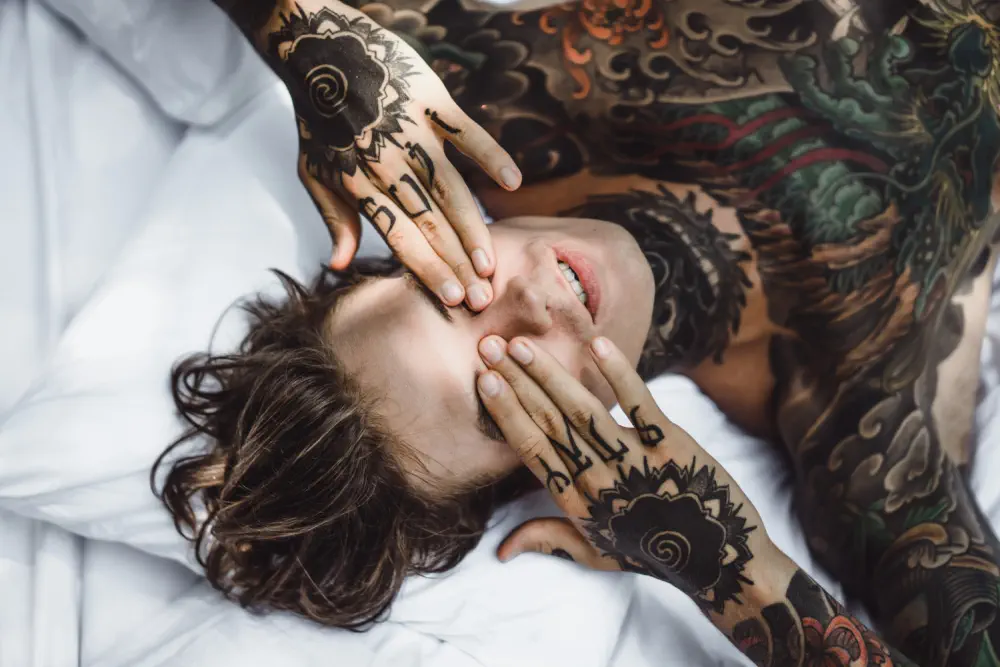
What Physical Risks Come With Excessive Tattooing?
The health risks of excessive tattooing extend beyond aesthetic concerns. Frequent skin trauma increases infection risk, particularly when proper healing time between sessions is ignored. Allergic reactions to ink ingredients can develop even after multiple successful tattoos. Scarring becomes more likely with overlapping work or tattoos in areas prone to poor healing.
The financial burden can be devastating. Quality tattoos are expensive, with large pieces costing thousands of dollars. Individuals in the grip of addiction may take on debt, neglect essential expenses, or engage in risky financial behaviours to fund their habit. The cost of potential removal—often exceeding the original tattoo price—adds another layer of financial strain.
Social consequences compound these challenges. While tattoos have gained mainstream acceptance, excessive or extreme modifications can still trigger discrimination. Employment opportunities may be limited, particularly in conservative industries. Relationships may suffer as partners struggle to accept dramatic physical changes.
Can You Feel Withdrawal Without Getting Tattooed?
Unlike substance dependencies, addiction to body art doesn't cause physical withdrawal symptoms. However, the psychological dependence can be equally powerful. When unable to get tattooed, individuals may experience intense emotional distress that mirrors withdrawal from other addictive behaviours.
Common psychological withdrawal symptoms include:
- Intense cravings and intrusive thoughts about tattooing
- Mood swings and irritability
- Anxiety and restlessness
- Depression and feelings of emptiness
- Sleep disturbances
- Difficulty concentrating on other activities
These symptoms create a self-perpetuating cycle. The discomfort of being unable to get tattooed drives the individual to seek relief through more tattoos, reinforcing the addictive pattern. Breaking this cycle requires addressing both the symptoms and their underlying causes.
The danger lies in escalation. As tolerance builds, individuals may seek larger, more painful, or more extreme tattoos to achieve the same emotional effect. Some progress to other forms of body modification, including scarification, implants, or surgical alterations. Without intervention, the behaviour can spiral into increasingly risky territory.
Can Therapy Help With Compulsive Tattooing?
Recovery from tattoo addiction begins with a professional assessment. Mental health professionals can evaluate the severity of the addiction and identify co-occurring conditions requiring treatment. The Addiction Severity Index or similar screening tools help determine appropriate intervention levels.
Cognitive Behavioural Therapy (CBT) has shown particular effectiveness in treating various behavioural addictions. CBT helps individuals identify triggers, challenge distorted thinking patterns, and develop healthier coping mechanisms. The therapy focuses on breaking the connection between emotional distress and the urge to get tattooed.
Dialectical Behaviour Therapy (DBT) offers additional benefits for those whose compulsive tattooing stems from emotional dysregulation. DBT teaches specific skills for managing intense emotions without resorting to impulsive behaviours. Mindfulness techniques help individuals sit with uncomfortable feelings rather than escaping through body modification.Support groups provide crucial peer connections. Following 12-step models or other frameworks, these groups reduce isolation and offer practical strategies from others who've faced similar challenges.
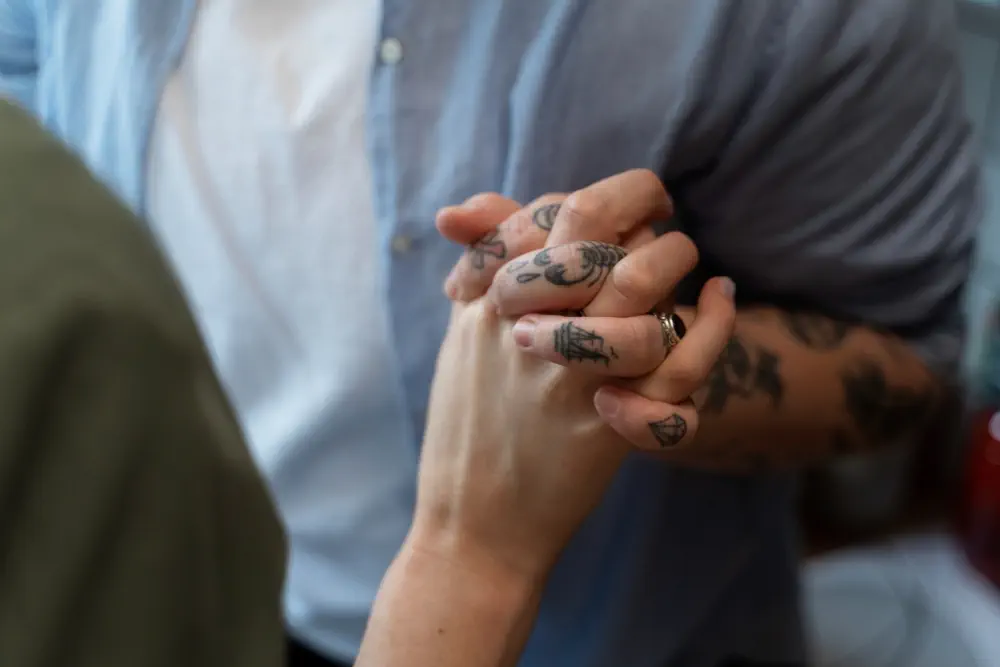
How Do You Know You Can't Handle This Alone?
Professional intervention becomes essential when tattoo behaviour causes financial crisis, severe emotional distress without tattooing, or relationship damage. Using tattoos as the sole emotional coping mechanism or experiencing work interference from tattoo-related thoughts indicates addiction has taken hold. Impulsive tattooing during intoxication or emotional turmoil, followed by immediate regret, confirms loss of control.
Recovery starts when individuals acknowledge that the problem exists. Mental health professionals specializing in behavioural addictions can assess severity and create targeted treatment plans. Success depends on honest disclosure about the addiction's impact and maintaining commitment through difficult therapeutic work. Support from friends and family strengthens recovery outcomes.The Canadian Centre for Addictions provides specialized behavioural addiction programs with evidence-based treatments. Recovery allows individuals to rebuild healthy relationships with body art while developing effective emotional management strategies.
FAQ
Is tattoo addiction a real medical condition
While not officially recognized in the DSM-5 as a distinct disorder, tattoo addiction shares characteristics with other behavioural addictions. Mental health professionals treat it as a legitimate concern when it causes significant distress or impairment in daily functioning.
How many tattoos indicate an addiction?
The number of tattoos doesn't determine addiction. Someone with two tattoos obtained impulsively during emotional crises may have more problematic behaviour than someone with full sleeves carefully planned over years. The key indicators are loss of control, negative consequences, and inability to stop despite wanting to.
Can you be addicted to tattoos without having many?
Yes. Addiction is characterized by obsessive thoughts and compulsive behaviours, not just the number of tattoos. Someone might spend excessive time planning tattoos, browsing designs, and thinking about getting tattooed without actually having many tattoos yet.
What's the difference between collecting tattoos and addiction?
Collectors make deliberate choices about their tattoos, can delay gratification, and maintain balance in other life areas. Addiction involves loss of control, continued behaviour despite negative consequences, and using tattoos as the primary coping mechanism for emotional distress.
Can compulsive tattooing be treated without giving up tattoos entirely?
Treatment focuses on addressing underlying issues and developing healthier coping mechanisms. Some individuals may choose abstinence, while others learn to engage with tattooing in a more balanced, intentional way. The goal is to eliminate compulsive patterns, not necessarily to never get another tattoo.
How long does recovery from tattoo addiction take?
Recovery timelines vary significantly based on individual circumstances, co-occurring conditions, and treatment engagement. Many people report significant improvement within 3-6 months of consistent therapy, though addressing underlying issues may take longer. Recovery is an ongoing process requiring continued self-awareness and support.

